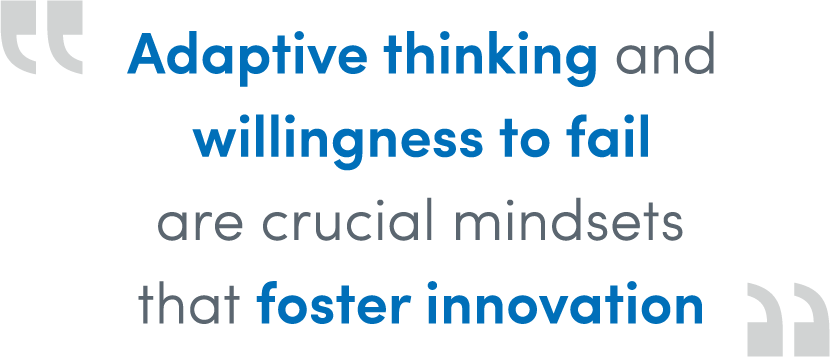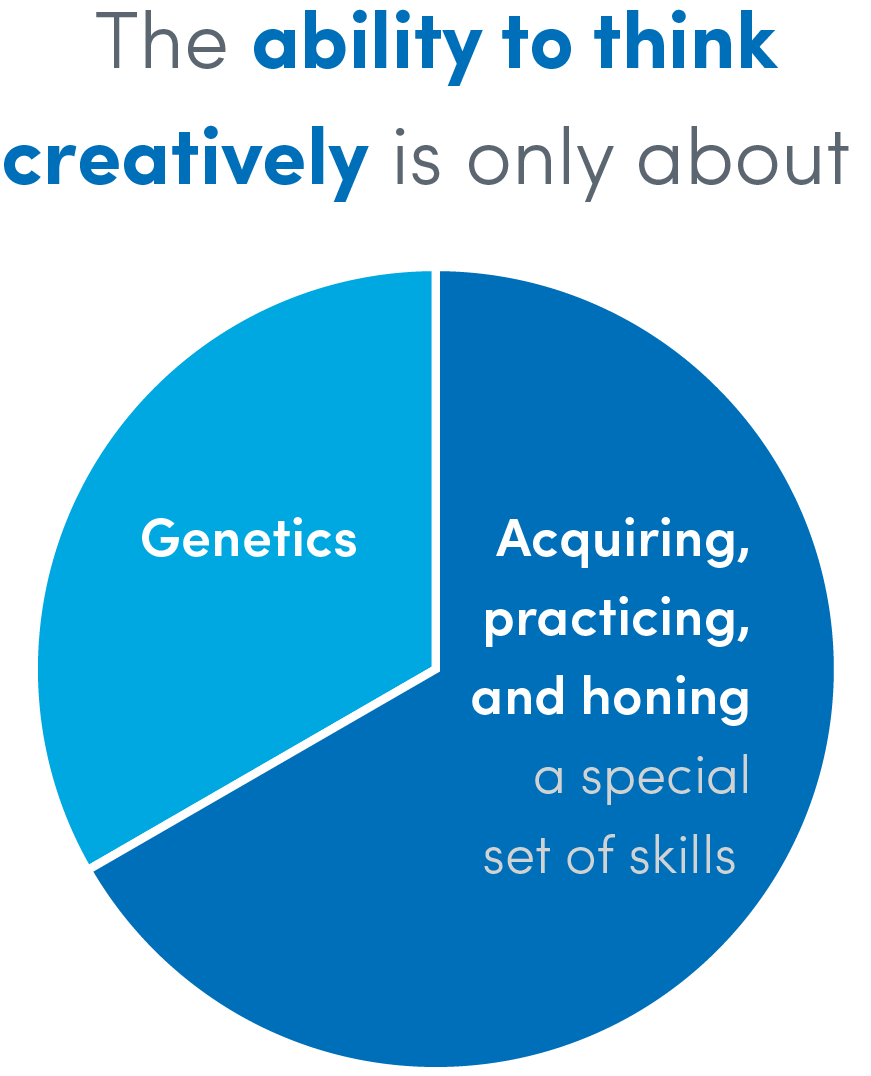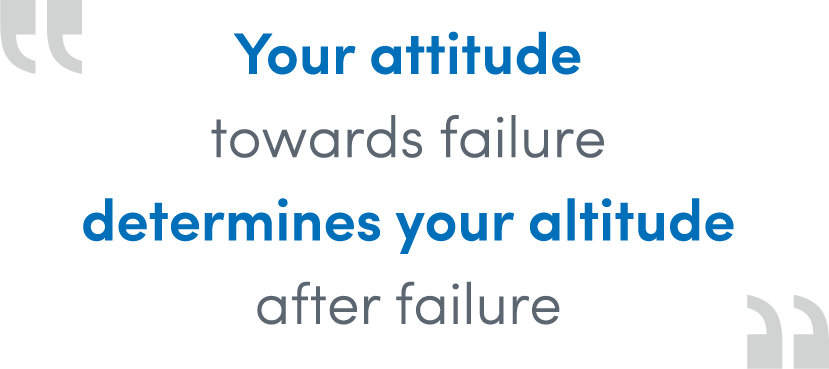We use cookies to maximize your online experience with us. By closing this window, you consent to our cookie policy. You can change your cookie settings in your browser any time. For more information, please see our Privacy Policy located on the footer of this site.
5 Key Skills shared by Creative and Innovative People

Many people assume that innovation is primarily driven by technology, science, and research, but it exists in every industry and is required in every successful leadership role. Often confused with improvement, innovation is simply solving a problem in a new way. Adaptive thinking and willingness to fail are crucial mindsets that foster innovation. Whether it’s a groundbreaking idea that changes the world (hello, iPhone) or a simpler one that creates a new way to streamline your organization’s performance, these mindsets need to be implemented into the work culture so that teams can confidently innovate
Why is innovation important?
 Once they find success, many companies are afraid to stray from what feels like a winning formula out of a fear of failure. While the world around them, which includes their customers and competitors, evolves to adopt new ideas and innovations, these companies will undoubtedly find themselves trailing behind.
Once they find success, many companies are afraid to stray from what feels like a winning formula out of a fear of failure. While the world around them, which includes their customers and competitors, evolves to adopt new ideas and innovations, these companies will undoubtedly find themselves trailing behind.
As humans, we’re drawn to new ideas, but we also experience an innate caution to stay within our safety zone. By overcoming our instinct to resist change and accept that failure may lead to positive outcomes, we open ourselves up to an environment of innovation where fresh discoveries, new information, and unexpected successes are within reach.
How can innovation be fostered within an organization?
Many people assume innovation is a rare skill and that generating new ideas requires hiring people from outside the organization. What they don’t realize is that there’s likely a vast amount of innovation already simmering under their roof.
If provided a supportive environment where innovation and creativity are nurtured, employees will begin to formulate new ideas and help drive the organization forward. Because it takes years to develop an environment and culture where innovation can fully thrive, the following aspects should be addressed as early as possible by leaders to kickstart the innovation evolution.
5 Key skills shared by creative and innovative individuals
 The ability to think creatively is only about one-third genetics; two-thirds of it comes from acquiring, practicing, and honing a special set of skills. Less susceptible to maintaining the status quo, successful and innovative entrepreneurs apply five key skills that increase the probability of generating novel business ideas. These skills should be practiced repeatedly in order for the behaviors to become automatic, eventually supporting the occurrence of innovation unconsciously.
The ability to think creatively is only about one-third genetics; two-thirds of it comes from acquiring, practicing, and honing a special set of skills. Less susceptible to maintaining the status quo, successful and innovative entrepreneurs apply five key skills that increase the probability of generating novel business ideas. These skills should be practiced repeatedly in order for the behaviors to become automatic, eventually supporting the occurrence of innovation unconsciously.
- Associating
Associating is the ability to connect seemingly unrelated questions, problems, or ideas. Expanding knowledge through reading, travel, or formal education helps build random connections between different fields that could spark an innovative idea. - Questioning
Successful leaders are candid in asking thoughtful questions that challenge common wisdom and practices. Instead of focusing on the “why?” angle, it’s more powerful and engaging to propose as “what if?,” where a potential solution is offered. This often leads to further creative thinking and idea generation. - Observing
Difficult to master because we’re often easily distracted, patiently observing things such as how people behave, the environment around us, and processes being practiced help us identify problems that unknowingly exist and potential new solutions. - Experimenting
Allow yourself to try new ideas and embrace failure. Failures can often be better learning experiences than successes. Practicing critical thinking to assess the outcome of an experiment leads to useful insights and encourages thinking outside the box. - Networking
Whether it’s to build a network of contacts or immerse yourself in an environment with people from different backgrounds and experiences, networking provides insight into different perspectives that could unintentionally inspire creative and unique ideas.
Encourage creative thinking

To truly consider a new innovative idea you must be willing to listen and understand. A person will stop offering new ideas if they are constantly shot down or if they feel no one is listening – they will simply stay in the box. If you want out of the box thinking, then you have to encourage it, nurture it, and take it seriously. Listening and acknowledging will keep the ball rolling.
To quote John C. Maxwell, “Your attitude towards failure determines your altitude after failure.”
Learn more about how you can bring innovation into your workplace Innovation is the new currency.
